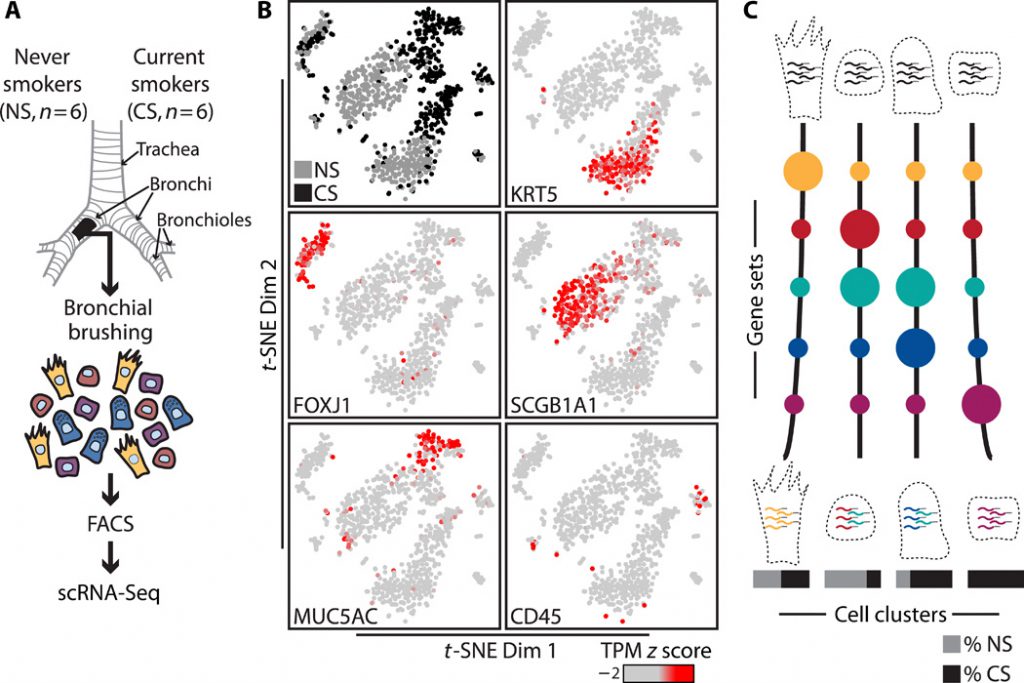Grant E. Duclos, Vitor H. Teixeira, Patrick Autissier, Yaron B. Gesthalter, Marjan A. Reinders-Luinge, Robert Terrano, Yves M. Dumas, Gang Liu, Sarah A. Mazzilli, Corry-Anke Brandsma, Maarten van den Berge, Sam M. Janes, Wim Timens, Marc E. Lenburg, Avrum Spira, Joshua D. Campbell*, Jennifer Beane*
Abstract
The advent of high-throughput sequencing technologies has led to the need for flexible and user-friendly data preprocessing platforms. The Pipeliner framework provides an out-of-the-box solution for processing various types of sequencing data. It combines the Nextflow scripting language and Anaconda package manager to generate modular computational workflows. We have used Pipeliner to create several pipelines for sequencing data processing including bulk RNA-sequencing (RNA-seq), single-cell RNA-seq, as well as digital gene expression data. This report highlights the design methodology behind Pipeliner that enables the development of highly flexible and reproducible pipelines that are easy to extend and maintain on multiple computing environments. We also provide a quick start user guide demonstrating how to setup and execute available pipelines with toy datasets.
Keywords: Nextflow; RNA-seq pipeline; pipeline development; scRNA-seq pipeline; sequencing workflows.

